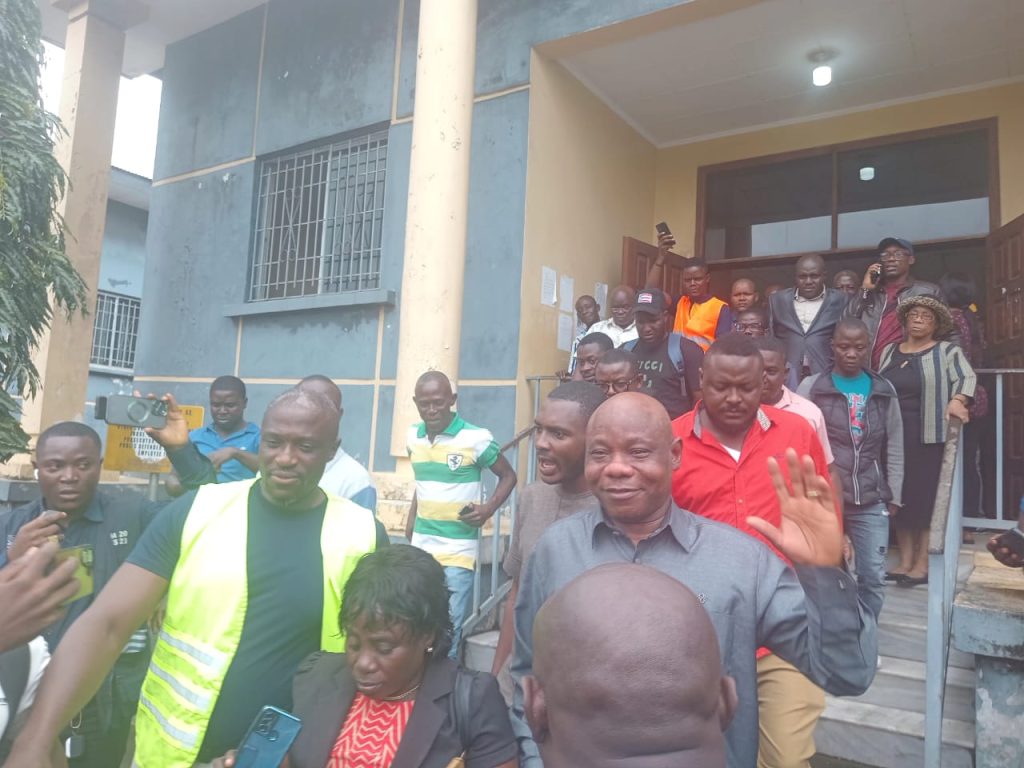The former Liberian Finance Minister, Samuel Tweah, along with several other high-ranking officials from the previous administration, are embroiled in a complex legal battle centered around charges of economic sabotage. They have filed a motion for dismissal, asserting immunity from prosecution based on their involvement in national security matters. The crux of their argument hinges on the claim that the investigation leading to their indictment, conducted by the Liberia Anti-Corruption Commission (LACC), delves into the activities of the National Security Council. They maintain that these activities are protected from judicial review and disclosure due to their sensitive nature. This legal maneuver has further complicated an already protracted and contentious legal process, marked by accusations of prosecutorial misconduct, judicial bias, and concerns over due process.
The defendants, including Cllr. Nyenati Tuan, former Acting Minister of Justice and Solicitor General; Stanley S. Ford, former Director of the Financial Intelligence Agency; Jefferson Karmoh, former National Security Advisor; and D. Moses P. Cooper, former Comptroller of the Financial Intelligence Agency, argue that the charges against them are “legally deficient” and violate their fundamental rights as enshrined in the 1986 Constitution. They contend that the indictment attempts to criminalize actions taken in the discharge of their official duties, specifically those related to national security. Furthermore, they assert that any judicial scrutiny of these actions risks exposing classified government communications and intelligence, thereby contravening the National Security Council Act. This argument rests heavily on the premise that members of the National Security Council are bound by an oath of secrecy, prohibiting the divulgence of information acquired during their tenure, even after leaving office.
The defense’s legal strategy utilizes the National Security Reformed and Intelligence Act of 2011, which designates members of the National Security Council as “trustees of the secrets of the Republic.” This Act mandates an oath of secrecy, enforceable for twenty years after leaving the Council, and imposes penalties for violations, including substantial fines and imprisonment. The defendants are leveraging this legislation to shield themselves from prosecution, arguing that the LACC’s investigation and subsequent indictment necessitate the disclosure of information protected by this oath. This legal tactic raises critical questions about the balance between national security interests and the pursuit of justice in cases of alleged economic crimes.
The case has been plagued by procedural delays and controversies since its inception. In December 2024, the Ministry of Justice petitioned the Supreme Court to halt proceedings, questioning the validity of an $8 million property bond approved by Judge A. Blamo Dixon of Criminal Court ‘C’. This led to a temporary stay on the trial and a subsequent conference. Following accusations of judicial bias from the prosecution, Justice Yarmie Quiqui Gbeisay ordered Judge Dixon’s recusal in January 2025. The defense has consistently criticized the prosecution for what they characterize as delaying tactics, alleging violations of their right to a speedy trial. This back-and-forth between the defense and prosecution, coupled with the judicial recusal, has significantly prolonged the legal proceedings.
In February 2025, Judge Roosevelt Z. Willie of Criminal Court ‘A’ ordered the prosecution to submit all relevant evidence to the defense, emphasizing adherence to procedural timelines. However, as of February 24, 2025, the case remains in legal limbo. The defense continues to press for dismissal, citing the cumulative effect of prosecutorial delays and concerns about judicial impartiality. The upcoming hearing on the motion for dismissal is crucial. The judiciary’s decisions will have significant implications not only for the defendants but also for the broader legal landscape in Liberia, particularly regarding the intersection of national security and criminal prosecution.
The unfolding legal drama surrounding the former officials underscores the challenges inherent in prosecuting cases involving national security concerns. Balancing the need for transparency and accountability with the protection of sensitive information is a delicate act. The judiciary’s handling of this case will set a precedent for future cases involving similar issues. It will be a test of Liberia’s legal system and its ability to navigate the complexities of national security and criminal justice. The outcome will undoubtedly have far-reaching consequences, impacting public trust in both the government and the judicial system.


